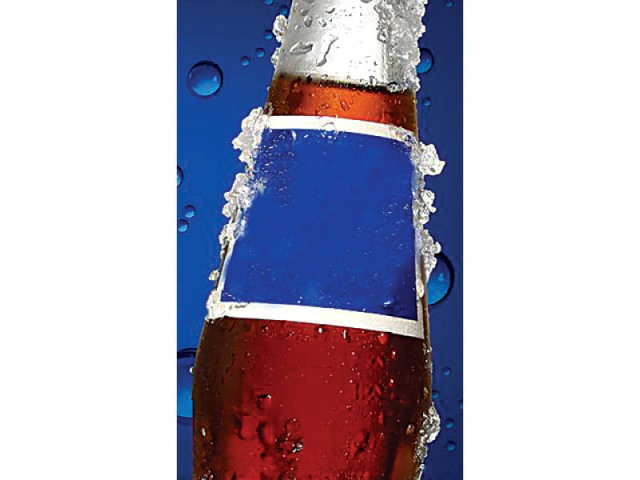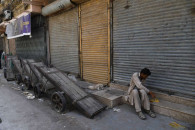Resolve: Businessman fights to save RC Cola
Small bottlers struggle in the face of capacity tax.

Small bottlers struggle in the face of capacity tax. PHOTO: FILE
For Ikram Elahi, Chief Executive of Pakistan Fruit Juice Company, which sells Royal Crown Cola, giving up is out of the question. Failure of a brand, which had been with the family for over two decades, would be a disgrace.
RC Cola is nowhere near its two main multinational competitors in Pakistan. But the brand once controlled a sizeable part of the market, especially in Lahore and some other cities of Punjab.
“I have no option but to fight to the very end,” he told The Express Tribune in an interview. “I know the odds are against us but all we want is a level playing field.”
Since the government came up with a controversial way of collecting revenue from the beverage industry in the 2013-14 budget, small bottlers like Ikram Elahi have been struggling. Many have shut their plants and cut capacity by more than half.

Pakistan Fruit Juice (PFJ) also makes Hico Ice Cream, which has dominated the take-home segment in Lahore since the 1950s and makes up most of the company’s revenue.
RC Cola accounts for just 30% of the PFJ’s sales and has a minuscule share in the beverage market, which is largely controlled by multinational bottlers.
Prior to making and selling RC Cola, Ikram’s family was one of the bottlers of a multinational beverage company. That agreement ended around early 1980s on a bitter note.
“RC Cola is ranked third globally. In the first year after taking the RC franchise, we imported the concentrate, which is used to make the drink, free of charge. That left us plenty of room initially to pass on the lower price to consumers,” he said.
Like most family businesses, Ikram was made to earn his way up the managerial chain. He was in college when he started assisting his father Inam Elahi, known as the pioneer of the beverage industry.
“My first job was to take measurements of billboards over shops. But before I knew it there was a tough assignment in front of me.”
By the late 1980s, RC Cola controlled 30% of the beverage market in Lahore. The company had already expanded its beverage operation with bottling plants in Multan and Islamabad.
Then in 1990, the government introduced capacity tax, which bound aerated drink makers to pay tax on the potential of machines instead of actual production.
What followed was a battle between small bottlers and big multinational companies. “To be honest, in the beginning we couldn’t even understand what had happened. The repercussions were yet to come.”
During those years, there was an association of beverage makers, which had taken up the issue with tax authorities. However, it soon became apparent that there was a clash of interest between the members.
Smaller companies didn’t have the financial muscle to compete with multinational brands, which had built extensive distribution channels. Some of the local firms couldn’t even afford television commercials.
By the time the tax was rolled back in 1994, 10 beverage firms and 13 juice plants had ceased to exist. Multinational brands now control 95% of the beverage market.
“It wasn’t just the tax. The competition at the stores had become dirty. We found out that our glass bottles were disappearing from the market. There was just one company that made bottles and waiting time to receive new deliveries ran into months,” Ikram said.
The capacity tax was introduced again in July 2013. And once again small companies are on the brink. The government expects to raise Rs33 billion through this tax against Rs28 billion which it earned last year from the beverages industry.
The Federal Board of Revenue (FBR) has realised that the tax has instead brought down tax collection and it is already reviewing the matter.
Published in The Express Tribune, January 11th, 2014.
Like Business on Facebook, follow @TribuneBiz on Twitter to stay informed and join in the conversation.



















COMMENTS
Comments are moderated and generally will be posted if they are on-topic and not abusive.
For more information, please see our Comments FAQ